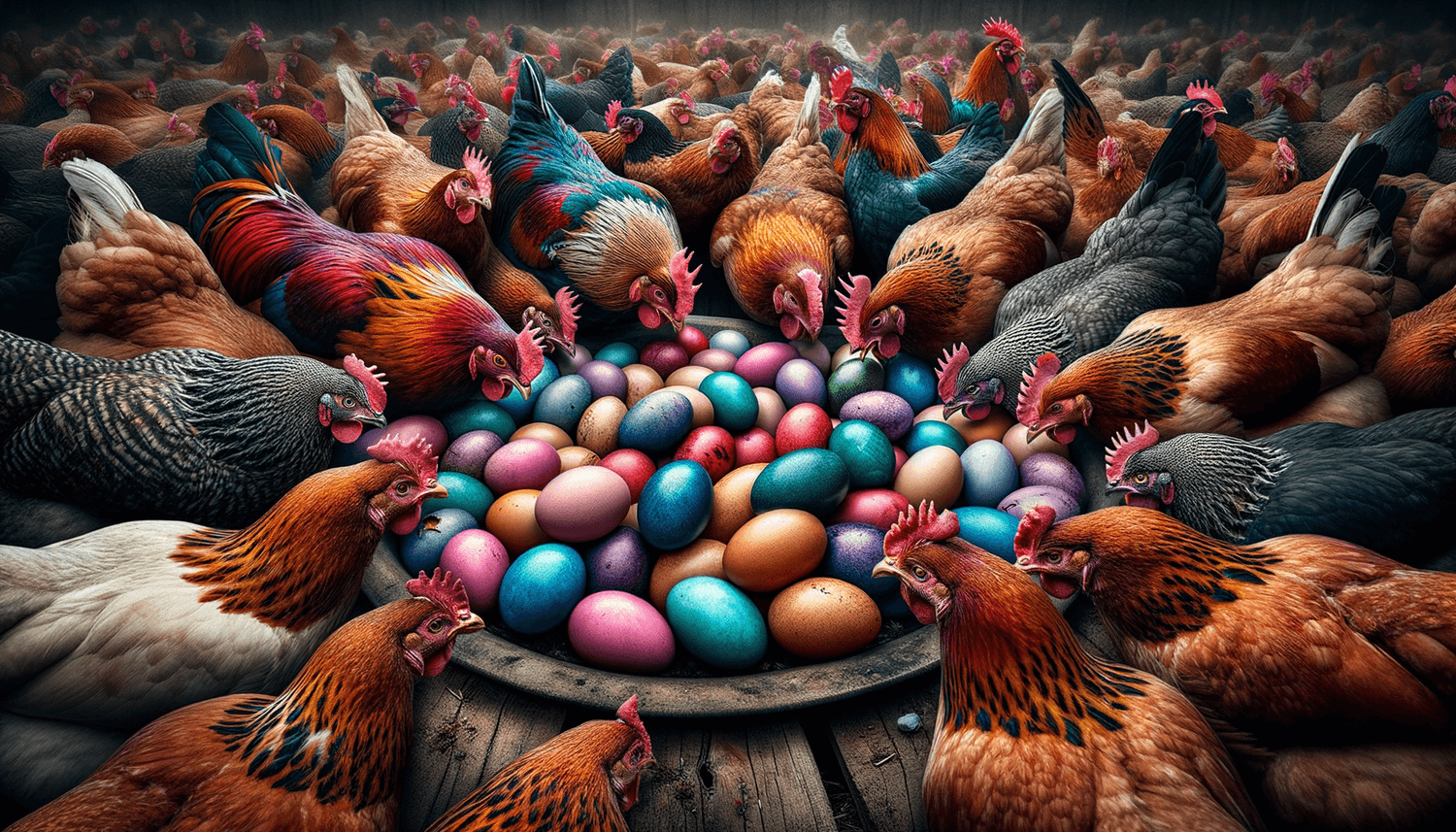Yes, chickens can eat dyed eggs. However, it is important to ensure that the dyes used are non-toxic and food-grade. Dyed eggs themselves are not harmful to chickens as long as the dye on the eggshell is safe for consumption. The egg inside retains its nutritional value, but caution should be exercised to avoid any potential contaminants.
Quick Summary
- Chickens can eat dyed eggs.
- The dyes used should be non-toxic and food-grade to ensure safety.
- Dyed eggs maintain their nutritional value, but there is a potential risk of contaminants.
- It is recommended to feed dyed eggs in moderation and as a part of a balanced diet.
Overview of Dyed Eggs
Dyed eggs are typically hard-boiled eggs that have had their shells colored with various dyes. While the shells are often dyed for decorative purposes, especially around certain holidays, the interior egg remains rich in protein, vitamins, and minerals, which are beneficial for chickens.
Benefits and Risks of Dyed Eggs for Chickens
Dyed eggs can be a source of high-quality protein and essential amino acids for chickens, as well as vitamins such as vitamin D, A, and some B vitamins. The risks associated with feeding dyed eggs to chickens include potential exposure to harmful chemicals if the dye is not food-grade or if the dyed shell fragments are ingested in large amounts.
Feeding Guidelines
To safely feed dyed eggs to chickens, ensure that the dyes used are non-toxic and food-grade. Offer the eggs in moderation, peeling the shells to reduce the chance of dye ingestion. Crumble the eggs into smaller pieces to prevent choking and as part of a balanced diet that includes a variety of grains, seeds, and greens.
Alternatives
If you are unsure about the safety of the dye used on the eggs, it is better to choose alternatives such as plain hard-boiled eggs, scrambled eggs, or a mix of grains and vegetables. These options are safe and healthy for chickens, providing a range of nutrients without the risks associated with potential contaminants.
Expert Opinions
Poultry nutritionists and veterinarians often suggest that any food given to chickens should be nontoxic and part of a diet appropriate for their species. While there is limited research specifically on dyed eggs, the consensus is that they can be consumed by chickens if the dyes are safe for ingestion and given in appropriate amounts.
Frequently Asked Questions
After learning about feeding dyed eggs to chickens, you may have additional questions for clarity. Here are answers to some common concerns.
Are the dyes on Easter eggs safe for my chickens?
Most commercial Easter egg dyes are non-toxic and are generally considered safe for chickens if ingested in small quantities. It’s always best to check the packaging of the dye to ensure it is food-grade and therefore suitable for feeding to your chickens.
How often can I feed my chickens dyed eggs?
Like all treats, dyed eggs should be fed in moderation. As a general guideline, treats should make up no more than 10% of a chicken’s diet. Depending on the size of your flock, one or two dyed eggs per week should be sufficient.
Is there any nutritional difference between dyed and non-dyed eggs for chickens?
No, there is no nutritional difference between dyed and non-dyed eggs. The dye applied to the eggshell does not affect the egg’s nutritional content. The key concern is the safety of the dye rather than the nutrition of the egg itself.

















